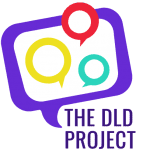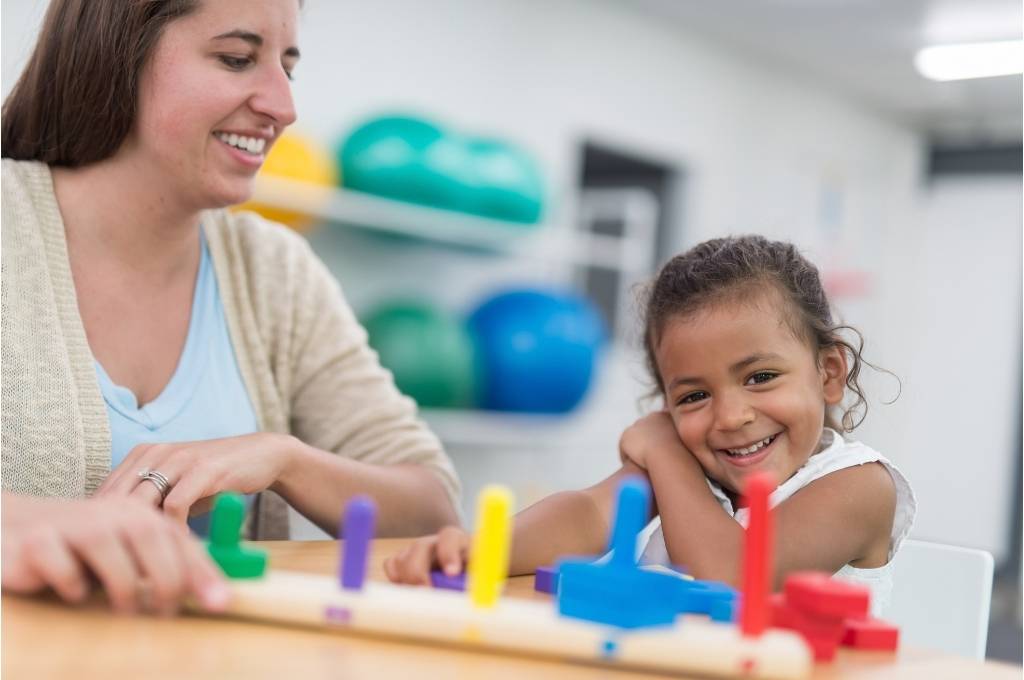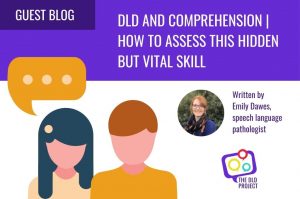The National Disability Insurance Agency (NDIA) have announced they are making changes to ensure the National Disability Insurance Scheme (NDIS) is ‘simpler, faster, fairer, and more flexible’. The changes are expected to take effect from mid-2021.
The DLD Project has been in communication with the NDIA who oversee the rollout of the NDIS and they have assured us the changes will be of benefit to people with Developmental Language Disorder (DLD). Of course, it is up to us to ensure we review the proposed changes, understand their impact on people with DLD and provide our feedback to the NDIS by the due date.
In this post we’ll provide details of the recommended changes, and discuss their potential impacts on people with DLD. We’ll also let you know where you can read the NDIS consultation papers and show you how you can have your say.
Importantly, we must provide all feedback to the NDIA by 10am Tuesday 23 February 2021.
>>>> Ready to have your say? Click on the button below to go to the NDIS submission webpage.
Why is it important for people with DLD and their families to provide feedback?
You might be thinking ‘but people with DLD don’t get funded by the NDIS so why bother providing feedback’? The good news is that statement is no longer true. We know of multiple families who are now successfully accessing the NDIS for their child with DLD. If you’d like to know more about applying to the NDIS read our post here.
What is the NDIA consulting on?
The NDIS have released three consultation papers and one project consultation report. The three consultation papers explain proposed changes to NDIS including what these changes will mean for participants.
- Consultation paper: access and eligibility policy with independent assessments
- Consultation paper: planning policy for personalised budgets and plan flexibility
- Consultation paper: supporting young children and their families early, to reach their full potential
- The Early Childhood Early Intervention (ECEI) Reset Project consultation report.
Papers 3 and 4 cover the Early Childhood Early Intervention (ECEI) Implementation Reset project, which includes background to the project for context, areas for improvement and further detail on how best practice is intended to work.
Consultation Paper 1: Access and eligibility policy with independent assessments
The access process – what is changing:
One of the biggest proposed changes is the move to independent assessments to help the NDIA make access and eligibility decisions.
- This means that from mid-2021, people over the age of 7 who meet the initial access requirements of the NDIS will be referred for an independent assessment.
- The disability access lists (List A and List B) will be removed from the access process. Instead, the NDIS will use ‘independent assessments’ to help them work out if someone meets the eligibility criteria of the NDIS.
- It is important to note that currently Developmental Language Disorder (DLD) IS NOT included on the disability access lists which may have contributed to people with DLD being rejected from the NDIS previously.
Independent Assessments - How will they work?
- The ‘Independent Assessment’ will be undertaken as part of one or more appointments organised and paid for by the NDIA. It will be completed by a qualified health professional. This person may be an occupational therapist, physiotherapist, or psychologist, who is both independent of the NDIA, and also not a person’s treating health professional.
- An independent assessment is not a medical diagnosis. Instead, the NDIS states it creates a complete picture of how a person manages tasks and activities in their life, as well as the overall impact the disability has on their life.
- The health professional will use standardised assessment tools to gather information over one or more appointments to make an assessment of functional capacity. A person’s age and primary disability will determine which and how many of the assessment tools need to be completed.
- Assessments may take up to 3 hours, and can be done in person at the health professional’s office, at home or over the phone.
- The results of the independent assessment will be provided to the NDIA to inform decisions about the applicant’s eligibility to access the NDIS and if already a participant, their personalised plan budget
- Your regular healthcare professional can not do your assessment. You will need to have your independent assessment done by one of the appointed assessors. All of the independent assessors will use the same assessment tools, and they work separately to the NDIA. You can choose to be referred to one that is close to your home or workplace, wherever suits you best
- Independent assessors aren’t NDIA employees.
- The NDIA are yet to announce who will be doing independent assessments.
The access process – what is not changing:
- When applying for the NDIS you will still need to provide evidence of age, residency and disability with your access request form. This includes advice from your treating health professional as to whether their impairment or impairments are, or are likely to be, permanent.
- Decisions about whether a person is eligible for the NDIS are still made by a person at the NDIA.
- The NDIS review and appeals processes will not change.
What The DLD Project wants to know
- How are the ‘Independent Assessors’ who will be health care professionals from a range of backgrounds (occupational therapists, physiotherapists, speech pathologists, clinical and registered psychologists, rehabilitation counsellors, and social workers) going to be trained to meet the requirements of this role which will include the need for an in depth understanding of numerous diverse disabilities that are not always well known and understood such as DLD?
- What measures will be taken to ensure people with DLD and other disabilities are not left feeling as though they are taking a ‘test’ causing anxiety?
Consultation Paper 2: Plan flexibility and budget planning
The planning process – what is changing:
- Your independent assessment will be used to develop your personalised budget.
- You will receive a draft plan, including a draft budget, before your planning meeting.
- The budget in your plan will be more flexible.
- Your plan can be set up for longer periods of time – up to 5 years or your next life stage. The NDIS will check in with you on a regular basis to make sure your plan is still working for you.
- From time-to-time, you’ll need to complete a new independent assessment, to make sure the funding in your NDIS plan is still right.
The planning process – what is not changing:
- Your NDIS plan budget will reflect your reasonable and necessary support needs.
- Your goals will still be an important part of your plan.
- Decisions about your personalised plan budget will be made by a person at the NDIA.
- If you are not happy with your plan, you can ask for a review. The review and appeals processes will not change.
- If you have a change in circumstances, you can ask for a plan reassessment.
- The NDIA can quickly make changes to your plan if there is an emergency or you can’t access your essential supports.
What The DLD Project wants to know
- What will trigger the need to complete a new independent assessment? This needs to be clear to help people with DLD and their families feel supported without concerns their funding might be cut at any moment. Simply stating ‘from time-to-time, you’ll need to complete a new independent assessment’ is too vague and inconsiderate to the significant impact changes in funding has on the life of a person with DLD.
Consultation Paper 3: Supporting young children and their families early, to reach their full potential
The NDIA has announced they want to ‘reset’ the Early Childhood Early Intervention (ECEI) approach. They are aiming to implement components of the new Early Childhood approach from early 2021 through to 2022. NDIA state that change is needed for the following reasons:
The numbers of children are high, and there are not enough children exiting the Scheme (no surprises here).
Eighty percent of the families of the 0–6-year-old participants self-manage or plan–manage. The NDIA is concerned that families do not have enough information or support to understand which services they should be purchasing (i.e. what is best practice for early childhood intervention [ECI]).
·The NDIA has concerns about the quality of the ECI supports being delivered. Currently, unregistered providers do not have to meet the NDIS Commission’s Practice Standards on Early Childhood Supports.
The vision of the ECEI Approach is unclear and not well articulated. The NDIA plans to rename it and review their communications.
Access and planning decisions are not being made in consistent and equitable ways.
Reasonable and necessary supports are not adequately considering the needs and capacity of parents and carers, children living in remote areas, Aboriginal or Torres Strait Islander children, children from culturally and linguistically diverse families and children from lower socioeconomic backgrounds.
- how quickly young children receive early intervention support
- how useful NDIS information is for families when they need to make decisions
- the quality of the supports and services young children receive
- the way they help families and children start the next stage of their life when they no longer need the NDIS.
tHE HISTORY OF THE ecei aPPROACH
The NDIA developed the current NDIS Early Childhood Early Intervention approach (the ECEI approach) in 2016 as the first national approach to early childhood intervention, as the NDIS was rolling out across Australia.
It aims to acknowledge the early years as important in a child’s development and supports children with developmental delay, disability and their families to achieve their best outcomes.
Currently, children make up over half of the NDIS participants, and there are close to 70,000 children aged 0–6 years receiving NDIS individualised funding. This represents an almost threefold increase in just two years (23,000 had individual plans at end FY18). This reflects, in part, an operational imperative to clear backlogs in ECEI applications that began in June 2020. However, the report has identified that there is a ‘higher volume of children than expected progressing through to funded supports’. Long term, one could assume this trend will have an impact on the sustainability of the NDIS.
To better understand the issues facing the ECEI approach, the NDIA consulted with families and carers, members of the early childhood sector, early childhood experts, the NDIS Early Childhood partners and providers of early childhood
services.
The consultation led to the NDIA’s conclusion that the ECEI approach needed to be ‘reset’ with 23 proposed recommendations to improve the way the NDIS supports young children and families.
The ECEI Approach – what is changing:
- The ECEI rules will be changed so that children under 9 years of age can take part. At the moment, only children under 7 years can take part in ECEI. They are making this change to ensure consistent support as a child transitions from early childhood learning to primary school.
- A Independent Assessments approach (IAs) will be implemented for young children to support consistent access and planning decisions.
- Specifically, the NDIA are planning to:
- Commission Early Childhood partners to administer Independent Assessments for young children rather than use a separate IA Assessor workforce
- Use IAs for young children above one years of age
- Use the following tools:
- Ages and Stages Questionnaire (ASQ-3) OR Ages and Stages Questionnaire -Talking About Raising Aboriginal Kids (ASQ-TRAK)
- PEDI-CAT (Speedy) OR PEDI-CAT ASD (Speedy)
- Vineland-3 Comprehensive (Interview Form)
- Young Children’s Participation and Environment Measure (YC-PEM) for children under 6 years
- Participation and Environment Measure – Children and Youth (PEMCY) for children 5+ years
- Specifically, the NDIA are planning to:
Use only the early intervention criteria to make NDIS access decisions for children.
Rather than ECEI being a ‘gateway’ to the Scheme, place greater emphasis on short-term early intervention (STEI) supports that can be provided without an NDIS plan by early childhood partners (ECPs).
Create an NDIA workforce which specialises in young children.
Consider a range of mechanisms to enhance provider compliance with best practice, including making the recently introduced ‘service provider outcomes report’ mandatory.
Clarify the interpretation of the developmental delay criteria in the NDIS A.
Allow ECPs to advise families on the best providers for their children.
Improve the reviews process for young children.
Offer families no longer eligible for the Scheme a ‘transition out’ plan for up to three months.
What The DLD Project wants to know
- We’d like details on how the NDIA are clarifying the interpretation of what a ‘developmental delay’ is. What experts have been engaged to provide input?
- Currently, children can access the NDIS through the early intervention criteria or the disability criteria of the Act. But the report recommends that children only enter through the early intervention criteria. This will require all children to have their access reassessed at regular intervals. For families of children who require life-long support, this seems an unnecessary burden and poorly thought through. One size does not fit all.
Have your say
The NDIA are asking for your feedback about how these changes to the NDIS will work. By providing your feedback, you’ll be helping to advocate for a better and fairer experience for all people with disability accessing the NDIS and participants already in the Scheme.
At the end of each paper, there are some questions. The NDIA welcomes your responses to these questions. You can answer some or all of them, you can also make a submission to some or all of the papers.
You can provide a written, audio or video submission. Please feel free to download + save our submission and attach it to your own submission to the NDIS. If you agree with the submission we have prepared feel free to simply share it with the NDIS via their form (available via the red button below) and add a note that you support the position provided by The DLD Project plus details on your connection to DLD.
You can also attend an online event to understand the changes they’re proposing, and learn how you can provide your feedback. Find an event.
Importantly, we must provide all feedback to the NDIA by 10am Tuesday 23 February 2021.
Share your feedback with The DLD Project
We will be preparing a submission to the NDIS on behalf of people with DLD in Australia. If you’d like to contribute your thoughts please comment on this post or email connect@thedldproject.com




